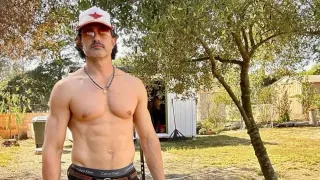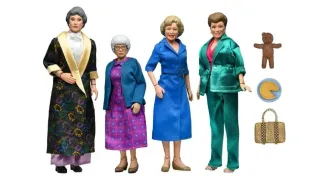December 4, 2016
Safety Seminar Urges People to Be Alert, Report Crimes
David-Elijah Nahmod READ TIME: 4 MIN.
Nationally, reported hate crimes against Jews, Muslims, LGBT people, and people of color spiked in the aftermath of the presidential election, and local community leaders held a safety seminar this week to address concerns in an era of President-elect Donald Trump.
According to the Guardian, a U.K.-based newspaper, the Southern Poverty Law Center counted 867 hate crimes in the United States in the first 10 days following the election.
Sister Roma of the Sisters of Perpetual Indulgence kicked off the seminar, held Monday, November 28 at SOMArts Cultural Center. About 100 people attended.
"I'm not afraid. You're not afraid. It takes courage to be gay and you are courageous to be here," Roma said.
Roma held up a Stop the Violence placard. She told attendees that if they were ever under attack in the Castro area, to look for the signs in store windows.
"These are safe spaces where you can seek refuge," she said. Attendees were also given whistles and urged to keep them in an easy-to-reach place whenever they were out in the neighborhood.
San Francisco Police Captain Teresa Ewins, a lesbian and 21-year veteran of the department, spoke to the crowd.
"I love it when people get pissed," Ewins said. "When they get pissed they take action."
She emphasized the importance of people in the community getting involved. "People say it didn't happen to me," she said. "We have to stop doing that."
She also explained the difference between hate speech and a hate crime. For example, merely saying the word "faggot" - the captain added that she hated using the word - was not a crime. A crime is committed when the incident escalates into violence, theft, or property damage. She also emphasized the need to stand with different communities and for people to work with law enforcement.
"Every police station should be welcoming to you," Ewins said. "You can always ask to speak to a member of the LGBT community. If we're going to stop people from coming to San Francisco to victimize the LGBT or immigrant communities then you must report it. We are a sanctuary city - we are not going to change as a city - we have to get the word out to our immigrant community."
Roma added that the Sisters were there to help. "San Francisco values will never change," Roma said. "You can turn to the Sisters if you need help - contact the Sisters, that's what we do."
Ray Tilton, a gay man who won the Mr. San Francisco Leather in 1990, spoke of the two times he was assaulted. He also urged people to report all incidents.
"I was assaulted in Guerneville in 1997," he said. "And again in the Castro over Pride weekend in 2010. No one deserves to be assaulted or hated upon for being themselves."
Tilton added that it was important for people to learn the proper procedures for reporting hate crimes and for pursuing criminal prosecution against their attackers.
Gay police Inspector Lenny Broberg, with the department's Gang Task Force,also urged people to interact with the police.
"SFPD has liaisons to every community - wherever you end up on the LGBT spectrum the San Francisco police are there for you," he said.
Greg Carey and Ken Craig of Castro Community on Patrol, a volunteer neighborhood watch group, spoke of the need for people to learn self-defense techniques.
"See someone in trouble?" Carey asked. "Don't pause. Blow the whistle. Call 911. We've lost the ability to help strangers - we need to relearn that. Learn to work with the police - our enemies are heavily armed and filled with hate. Report every crime."
Carey also mentioned the importance of court appearances.
"Testify is you're a witness to a hate crime," he said. "Juries often acquit without witnesses."
Carey said that Castro Community on Patrol's insurance policy prevented them from offering protection outside of the Castro/Duboce Triangle area.
"We are ready to help other groups get started in other neighborhoods," he said. "Will there be violence? Yes. Can we stop it all? No. Can we be a unified and visible presence and make a difference? Yes?"
Carey and Craig then presented a 20-minute demonstration of simple self-defense techniques that people can use if they're physically attacked. Craig also offered a few tips in how to avoid physical confrontations.
"Plan your route when you go out, and have a back-up," he advised. "Use the buddy system. Let people know where you are. Don't make yourself an easy target. If something doesn't look, feel, or smell right, then listen to that. Do whatever you need to do to avoid that situation. Exude confidence even if you're not. Attract attention. Don't let embarrassment prevent you from seeking help from others. Evasion is the best strategy."
Luke Adams, a gay clinical psychologist, talked about mental health and self-care. Adams feels that fake news on social media has decimated the community's morale.
"Avoid social media," Adams suggested. "Choose two or three news sources that you trust and stick with them. Build friendship networks."
Adams also feels that some activists take on too much by becoming involved with too many causes.
"Pick one issue so you don't get overwhelmed," he said. "Give yourself time to grieve if something happens. It takes three to five years to process through the grieving process. Don't tell others or yourself to get over it. Seek help if you feel depressed or suicidal."
Castro Community on Patrol will offer its next training January 21. For more information, visit www.castropatrol.org. Phone numbers people can call include the district attorney's hate crime hotline, (415) 551-9595; the SF Human Rights Commission, (415) 252-2500; Community United Against Violence, (415) 777-5500; and Castro Community On Patrol, (415) ASK-CCOP






